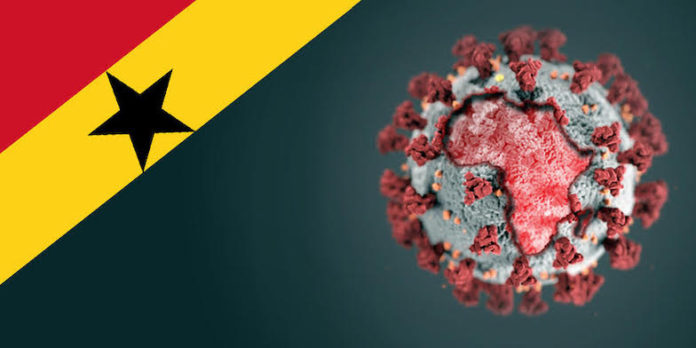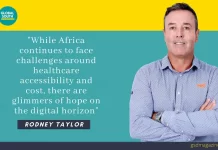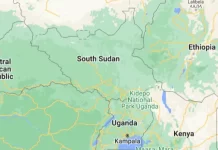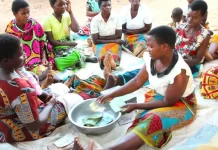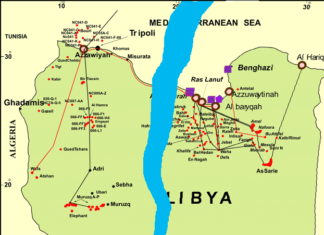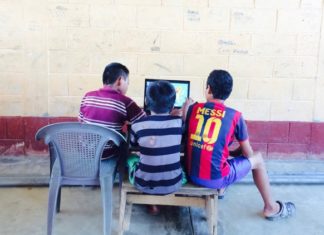 By Maxwell Akosah
By Maxwell Akosah
The COVID-19 pandemic hit Ghana, as it did other African countries, in mid-March 2020 when it had already affected most European countries and was on a full swing in Asia, particularly in China from where it all started. I still remember when the government of Ghana tried every means to prevent the virus from entering the country. Not because they were afraid of the infected people moving into the country, but their primary concern was how such a small developing country would be able to fight a disease that the so-called developed countries were struggling to combat. Some of the questions that popped-up during that time included: do we have enough resources? (both human and infrastructure), do we have an economy strong enough to fight the pandemic? And how could we keep on going with harsh restrictions on our everyday social life?
Notwithstanding all measures put in place, and considering the alarming rate of infection of the coronavirus, the inevitable eventually happened. On 12 March 2020, Ghana Health Service under the Ministry of Health confirmed the first two COVID-19 cases in the country. The cases have since been rising daily with the COVID-19 story yet to end. To this point, Ghana has recorded 46,222 cases of COVID-19 cases with 45,417 recoveries and 299 deaths.
Despite the fear and panic circulating the country about the pandemic, Ghanaians remained pretty calm and were battle-ready to fight against the coronavirus. One must commend the President of Ghana for his enormous contribution to bringing the situation under control. Right from the beginning, the government put in place a response plan, for which the President released 100 million dollars immediately after the first case was recorded. Besides, President Akufo-Addo has been delivering weekly “nation’s addresses” and updates Ghanaians about the pandemic situation in the country and ways to combat it effectively.
There is a saying that everything happens for a reason. I do not advocate that COVID-19 was a blessing in disguise. However, there have been a number of exciting happenings across the country since the emergence of the COVID-19 pandemic. For the first time in the country, undoubtedly since the fight for independence when we stood for one objective, Ghanaians have come together as a nation without a partisan, tribal, and religious division, and the common aim is to fight the pandemic. Quickly, the people of Ghana brought their heads together not only to strategize the fight against the pandemic but also to create a sustainable plan for going forward.
In the early days of the pandemic, suddenly, nothing could be imported or exported, and as a nation, we began to live somehow independently, without relying much on other countries.
We invented veronica buckets to ensure proper handwashing and to promote personal hygiene within our communities.
Professor Kwabena Frimpong-Boateng, Minister for Environment, Science, Technology & Innovation, describes the COVID-19 crisis as “a wake-up call to us as Ghanaians on self-sufficiency”. Ghanaians started producing face masks and hand sanitizers for local use at affordable prices. We also invented veronica buckets to ensure proper handwashing and to promote personal hygiene within our communities.
During the three-week-long nationwide lockdown, we arguably experienced the most severe economic difficulties of our time as a country, as people became jobless and everyone was crying for financial help.
During the lockdown, love and concern for one another grew among the citizens, and we encouraged each other to be resilient. Ideas for preventing or defeating the coronavirus were freely shared. Everyone contributed their share in fighting against the pandemic. For instance, a generous lady Nana Yaa Ofori-Atta, though not a rich person herself, decided to contract a dressmaker and use her reusable clothes to produce face masks for the front-lines workers.
I was amazed at how Ghanaians swiftly united for a common cause. Families were calling each other or their relatives, particularly those of us in the diaspora. At the beginning of the pandemic, I used to receive countless calls and messages from my family members and friends back home, asking me about the coronavirus situation and inquiring how I was faring.
Religious institutions, NGOs, and other stakeholders were donating veronica buckets and hand sanitizers to the poor and the disadvantaged communities. They have also been donating food items and other essential materials to the poor, aged, and needy people.
To mention a few examples, in June 2020, a national youth of the International Confederation of the Society of St Vincent de Paul Ghana organized a donation of prepared food for about 200 street children and homeless people in Accra. Recently, SPAR International signed a partnership in Ghana to feed vulnerable families and community charities across the country as part of its COVID-19 Preparedness & Responsiveness program.
I was amazed at how Ghanaians swiftly united for a common cause.
Individuals within the communities cannot be left out of their contributions to support the vulnerable and the needy, especially during the lockdown period. Coming from a poor and deprived community, during the lockdown, we contributed as a family to prepare food share with our people. Indeed, it was the period to show love and care to one another.
This pandemic has taught us a lesson, too. Going forward, as a nation, we have to take charge of our possessions and believe in our abilities. We do not have to be over-dependent on other countries, and should focus on producing from the abundant resources we possess. For instance, we have gold, but we rely on the Western countries for jewelry production. We have abundant cocoa, but we depend on others for cocoa products.
Sometimes, I find it embarrassing that even ordinary toothpicks have to be imported to our country while we have enough resources to produce them ourselves. It’s right time that we learn from this experience. We must advocate creativity and innovation by encouraging, admiring, and patronizing what we do, for there is one Ghana for Ghanaians. Let us brighten the corner where we are.
We should not wait for a tragedy to strike us before uniting as a country with a common destiny. We must show continued care, unity, and love among one another. In a time like this, one of the critical components of community development is to support each other. Give if you have, share if you have, and help if you can.
Finally, COVID-19 is a reality check on humanity. It has taught us to prepare for the unpredictable adequately and that no man is an island, so we need one another to save the world.
(Maxwell holds a Master’s Degree in Education Leadership from the University of Jyväskylä, and is pursuing a degree in social work and community development at the Diaconia University of Applied Sciences, Finland. Currently, he is an intern at Global South Development Magazine. )


